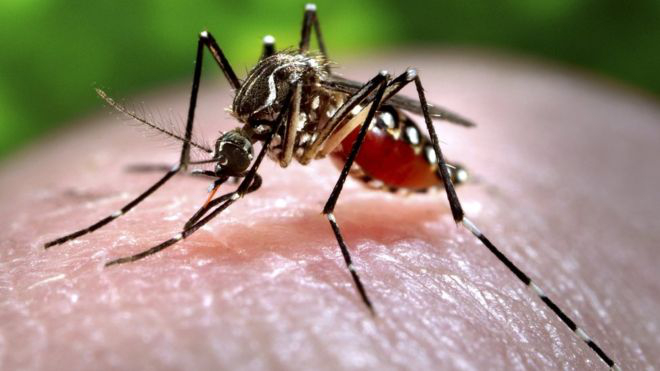|
Skeeter season is upon us |
|
May 9, 2017 |
 |
Panhandle Health District (PHD) is urging
residents to be aware of mosquito-borne
illnesses. Historically, a wet and snowy winter
season leads to additional snowmelt and new
sources of standing water during the spring and
summer months.
These conditions are ideal breeding grounds for
mosquitoes.
“Mosquito season has arrived in the Inland
Northwest,” Dave Hylsky, PHD Epidemiologist
declared. “Mosquitoes native to this region can
carry and spread a variety of viruses. We are
particularly concerned about a possible increase
in locally-transmitted West Nile Virus cases.”
In 2016, several cases of West Nile Virus were
reported in local horses and the virus
contributed to four horse deaths within
Panhandle Health District.
None of these horses reported recent travel
outside the Inland Northwest.
West Nile Virus (WNV) is transmitted to people,
birds and other animals by the bite of an
infected mosquito. WNV can cause serious illness
in people of any age, but especially in people
over the age of 50 or those with other
underlying medical conditions.
You can “Fight the Bite” to prevent WNV and
other mosquito-borne illnesses by taking the
following steps:
1. Eliminate mosquito breeding sites by removing standing water around
your home and property, including garbage cans,
birdbaths, tires, wheel barrows, etc.
2. Inspect window and door screens to ensure they are fitted and
repaired; keeping mosquitoes outdoors.
3. Wear repellent containing DEET, Picaridin or Oil of Lemon Eucalyptus
according to the label. Consult with your
physician before applying repellent on an
infant.
4. Limit activity and wear long-sleeves and pants between dusk and dawn,
when mosquitoes are most active.
There is no WNV vaccine available for people.
Horse owners can take precautions and protect
their animals by talking with their veterinarian
about proper vaccination.
Other viruses, such as Zika, Dengue and
Chikungunya are primarily a concern for people
who may by traveling to areas where the viruses
are active. If residents plan to travel outside
Idaho to more tropical locations, they are
advised to review the CDC’s travel notices and
warnings in advance. |
|
Questions or comments about this
article?
Click here to e-mail! |
|
|
|
|

